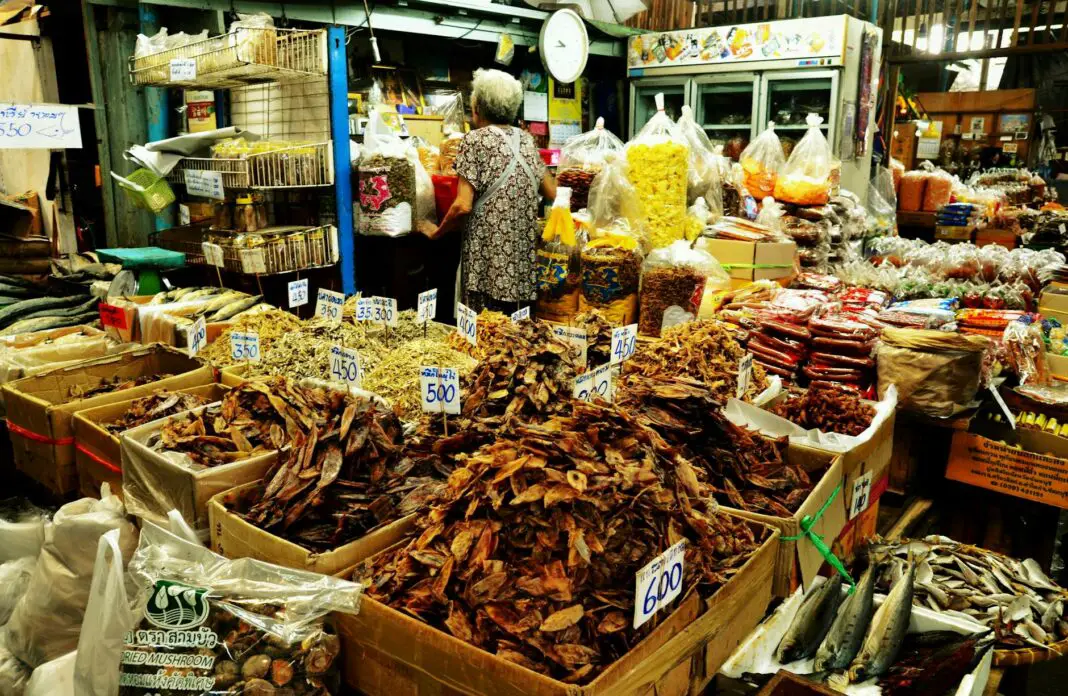Planning a trip to Thailand is like stepping into a world that beautifully blends rich culture, stunning landscapes, and culinary delights. However, one activity that frequently caught travelers off guard is bargaining, especially in bustling markets. Bargaining is not just a skill; it is an art form deeply embedded in Thai culture. Many visitors unknowingly make mistakes while trying to grab a deal, which can hinder their experience. This blog post dives into essential tips to enhance your bargaining skills while traveling in Thailand, ensuring your trip is as memorable as possible.
From understanding cultural nuances to recognizing the correct attitude for bargaining, we will explore various aspects that can greatly influence your shopping experience. By the end of this post, you will be equipped with actionable insights to navigate the vibrant markets of Thailand confidently. Are you ready to unlock the secrets of successful bargaining? Let’s get started!
Table of Contents
- Understanding Cultural Nuances
- Common Mistakes to Avoid While Bargaining
- Tips for Successful Bargaining in Thailand
- When to Bargain and When to Just Pay
- Embracing the Experience
- Final Thoughts on Bargaining in Thailand
Understanding Cultural Nuances
Before diving into bargaining, it is vital to grasp the cultural background of Thailand. The locals take immense pride in their heritage, and respecting their traditions can foster a more enjoyable experience. Understanding the concept of “kreng jai,” which reflects the idea of being considerate and self-restrained, can significantly enhance your bargaining encounters. This cultural nuance highlights the importance of politeness; being overly aggressive or pushy may lead to a negative reaction. Entering a bargaining scenario with a polite smile while using simple Thai phrases can create a ripple effect of goodwill, allowing for better interactions. Also, learning to show appreciation, even if a deal doesn’t come together, can leave a lasting impression and potentially lead to future negotiations. Thus, taking time to familiarize yourself with such cultural subtleties will not only help in making good deals but also create a memorable experience.
Common Mistakes to Avoid While Bargaining
Diving into negotiations without doing your homework is a common pitfall for many tourists. One significant error is not knowing the market value of the items you wish to buy. Always research or ask around to have a baseline price in mind; this knowledge can bolster your bargaining position. Another prevalent mistake is showing too much enthusiasm for the product, as it signals desperation to the seller, consequently increasing the price. It’s essential to maintain an air of casual interest while bargaining. Additionally, never forget the power of silence. The longer you hold in your response after receiving a price, the more uncomfortable the seller may feel, often leading them to offer a better deal without any prompting. Avoid these traps, and you will find yourself engaging in more fruitful negotiations.
Tips for Successful Bargaining in Thailand
To truly master the art of bargaining, consider employing a few strategic techniques that can enhance your ability to negotiate effectively. Start by establishing rapport with vendors; a friendly greeting can go a long way in fostering a positive interaction. Utilizing humor, when appropriate, can also break the ice and put both parties at ease. Another effective strategy is to present a counteroffer that appears as a thoughtful concession rather than an aggressive accusation of overpricing. A good rule is to offer about half of the asking price, then negotiate from there, gradually rising to a mutually agreeable figure. Refrain from showing any distress if a vendor declines your offer; simply walk away politely and act uninterested. This strategy can sometimes lead the vendor to call you back with a more favorable deal, capitalizing on the principle of scarcity. Remember, negotiation is as much about the experience as it is about the final price.
When to Bargain and When to Just Pay
Bargaining can be common in various places, but knowing when it is appropriate to negotiate and when to simply accept a stated price can save you from embarrassing moments. Street markets, local shops, and souvenir stalls are usually fair game for bargaining, while upscale stores, restaurants, and official establishments typically have fixed prices. Nonetheless, it is prudent to familiarize yourself with local customs to make an informed decision. For instance, during festive seasons or when purchasing traditional handicrafts, showing appreciation for the item may warrant a slight increase in your offer rather than pushing too hard for a discount. Always assess the situation to ensure that your actions align with the local norms; this can lead to a more pleasant experience, allowing both of you to part ways with smiles.
Embracing the Experience
Ultimately, bargaining in Thailand is more about enjoying the journey than merely securing lower prices; it’s an essential aspect of Thai commerce, often seen as a playful interaction. Learn to embrace the experience by engaging with local vendors, hearing their stories, and appreciating their craftsmanship. Many travelers, having enjoyed their interactions with locals, have walked away with not only items of value but also cherished memories and newfound friendships. The process encourages a sense of community that transcends monetary transactions. Approach bargaining as an exciting challenge rather than a chore, and you will find yourself immersed in an authentic slice of Thai culture that enhances your overall travel experience.
Make the Most Out of Your Bargaining Adventure in Thailand
Negotiating prices in Thailand can be a phenomenal way to enhance your trip while embracing local culture. By understanding and avoiding common pitfalls, employing effective tactics, recognizing the right moments to bargain, and truly savoring the experience, you can significantly enrich your journey across this captivating country. Equipped with newfound insights, seize the opportunity to build connections and reveal the vibrant side of Thai life waiting just beyond the marketplace stalls.
Frequently Asked Questions (FAQ)
- Is bargaining a common practice in Thailand? Yes, bargaining is quite common, especially in local markets and shops. However, some establishments may have fixed prices.
- What should I do if I’m uncomfortable bargaining? It’s okay to politely decline to negotiate. You can always buy at the fixed price if it feels more comfortable.
- Can I use credit cards when bargaining? Many stalls prefer cash for bargaining, so it’s advisable to carry cash when visiting markets.
- What if I don’t speak Thai? You don’t need to be fluent; simple phrases and gestures can suffice. Vendors often understand basic English.
- How much should I offer when bargaining? A common starting point is to offer around 50% of the asking price, then negotiate from there.
Image Credit: Pexels





